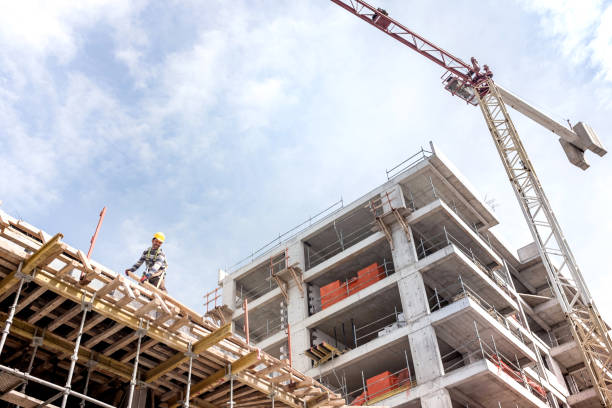How to find a construction job in Japan, for Japanese people?
Finding a construction job in Japan can be an exciting opportunity for Japanese individuals looking to enter or advance in the construction industry. With the country's ongoing infrastructure development and urban renewal projects, there's a consistent demand for skilled workers in this field. This article will guide you through the process of securing a construction job in Japan, covering everything from job search strategies to understanding salary expectations.

What are the best job search platforms for construction work in Japan?
When searching for construction jobs in Japan, leveraging online job search platforms is a crucial first step. Websites like Indeed Japan, Daijob, and CareerCross often list numerous construction-related positions. These platforms allow you to filter jobs by location, experience level, and specific construction skills. Additionally, specialized construction job boards such as Kensetsu Navi and Kensetsu-Job.com focus exclusively on the construction industry, providing targeted opportunities for job seekers.
It’s also worth exploring social media platforms like LinkedIn, where many construction companies and recruiters actively post job openings. By following construction firms and industry groups on these platforms, you can stay updated on the latest job opportunities and industry trends.
How can local employment agencies help in finding construction jobs?
Local employment agencies play a significant role in connecting job seekers with construction employers in Japan. Agencies like Recruit Agent, Pasona, and Tempstaff have specialized divisions for construction and engineering jobs. These agencies often have exclusive relationships with construction companies and can provide insights into unadvertised positions.
When working with an employment agency, be prepared to share your detailed work history, skills, and certifications. Many agencies offer free services to job seekers, as they are typically compensated by the hiring companies. They can also provide valuable advice on resume preparation and interview techniques specific to the Japanese construction industry.
What qualifications and certifications are required for construction jobs in Japan?
The qualifications required for construction jobs in Japan can vary depending on the specific role and level of responsibility. However, some common requirements include:
-
A degree in civil engineering, architecture, or a related field for management positions
-
Technical school certification for skilled labor positions
-
Safety certifications such as the Construction Industry Safety and Health Management Course
-
Specific licenses for operating heavy machinery or specialized equipment
For non-Japanese nationals, proficiency in the Japanese language is often crucial, especially for on-site communication. Some companies may also require the Japan Construction License (Kensetsu Gyō Kyoka) for certain positions, particularly for those involved in project management or running a construction business.
How do construction workers’ salaries compare across different roles in Japan?
Construction workers’ salaries in Japan can vary significantly based on factors such as experience, specific role, and location. Here’s a general overview of salary ranges for different construction roles:
| Position | Experience Level | Estimated Annual Salary Range (JPY) |
|---|---|---|
| General Laborer | Entry-level | 2,500,000 - 3,500,000 |
| Skilled Craftsman | 3-5 years | 3,500,000 - 5,000,000 |
| Site Supervisor | 5-10 years | 5,000,000 - 7,000,000 |
| Project Manager | 10+ years | 7,000,000 - 10,000,000+ |
Prices, rates, or cost estimates mentioned in this article are based on the latest available information but may change over time. Independent research is advised before making financial decisions.
It’s important to note that these figures can be influenced by factors such as company size, project scale, and regional economic conditions. Urban areas like Tokyo and Osaka typically offer higher salaries compared to rural regions due to the higher cost of living and increased demand for construction services.
What unique aspects of Japanese construction culture should job seekers be aware of?
Japanese construction culture is known for its emphasis on precision, quality, and teamwork. Job seekers should be prepared for a work environment that values punctuality, respect for hierarchy, and collective responsibility. The concept of “kaizen” (continuous improvement) is deeply ingrained in the industry, encouraging workers to constantly refine their skills and processes.
Safety is paramount in Japanese construction sites, with rigorous protocols and daily safety meetings being the norm. Additionally, the industry places a strong emphasis on environmental consciousness and sustainable building practices, reflecting Japan’s commitment to eco-friendly development.
How can networking and industry events boost your chances of finding a construction job?
Networking plays a crucial role in the Japanese job market, including the construction industry. Attending industry events, trade shows, and seminars can significantly enhance your chances of finding a construction job. Events like the Japan Build Expo and the Architecture and Construction Materials show provide excellent opportunities to meet potential employers and learn about the latest industry trends.
Joining professional associations such as the Japan Society of Civil Engineers or the Architectural Institute of Japan can also expand your network and provide access to job postings and industry insights. These organizations often host networking events and workshops that can be valuable for career advancement in the construction field.
By leveraging a combination of online job platforms, employment agencies, and networking opportunities, Japanese job seekers can effectively navigate the construction job market. Remember to highlight your skills, certifications, and any unique experiences that set you apart in this competitive industry. With perseverance and the right approach, you can find rewarding opportunities in Japan’s dynamic construction sector.




